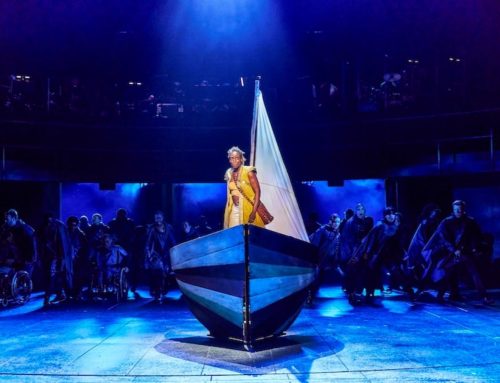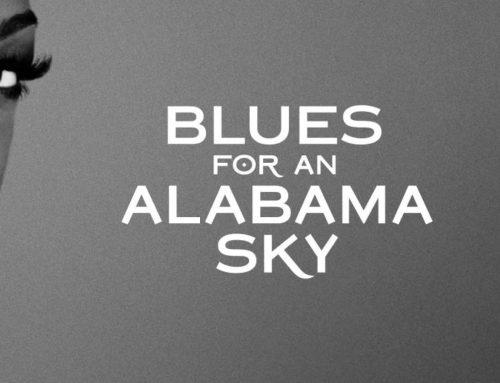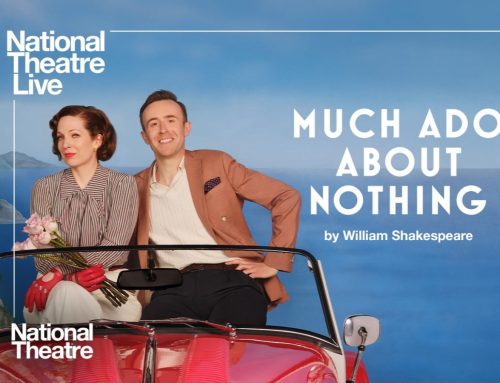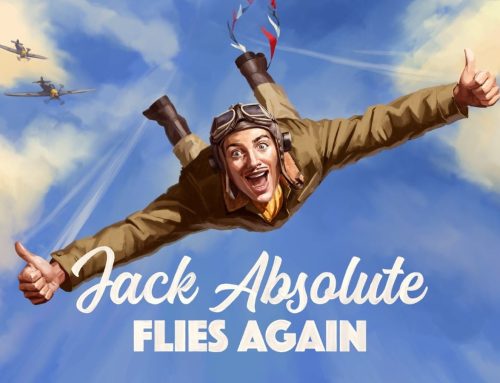David Eldridge’s two-hander on the incipient collapse of a marriage feels unbaked, despite solid performances from Daniel Ryan and Claire Rushbrook.
5 May 2020
‘Beginning’, the much-lauded first part of David Eldridge’s trilogy about love and relationships ran at the National Theatre back in 2017, before transferring to the West End to a host of 5-star reviews.
‘Middle’, the National’s second instalment is, like its predecessor, a two-hander that unfolds in real-time (in both cases early morning) and combines drama and comedy to explore the dynamics of a relationship between a man and woman who seem miles apart in personality and goals.
There, I am afraid, the similarity between the two plays ends because I cannot imagine ‘Middle’ will garner the same kind of critical approval as its forerunner. In fact, it is a confused package of truisms that cannot decide whether it wants to be a romantic comedy or a poignant drama, and which ends up being neither.
It is 4.30am, the morning before a get-together with the in-laws. Claire Rushbrook’s late-40s Maggie is pacing around the kitchen of her six-bedroom Essex mansion, apparently wondering how to break it to husband of 13 years, Gary, that she has met someone else and does not love him anymore.
By providential coincidence, aging city-boy Gary, played with a kind of stoic fatigue by Daniel Ryan, wanders down to the family’s well-appointed kitchen at the same ungodly time in the morning to make himself a cup of tea and defrost his signature fennel-seed-marinated pork roast.
Maggie grabs the chance to break her news. What follows is 100-minutes of unplanned honesty, confessions, and general chest-baring on both sides that reveals the sorry state of a splintering marriage.
Lonely, university-educated, Maggie wants to hubby to listen to Radio Four, but all the distant and distracted comprehensive-school-educated boy wants to do is watch Sky Sports. She wants to engage in extended discussion about erudite books, but unfortunately the only volume he has read recently is a footballer’s autobiography. The only thing they appear to have in common is extended families who dislike each other, and a deep-seated fear that eight-year-old daughter, Annabelle, will wake up. This is not so much a marriage as a joint enterprise in keeping families apart and offspring comatose.
All this is a good set-up for a rom-com, albeit rather a cliched one, and the play is certainly not lacking in a few decent jokes. Gary, reflecting on his search for vibrators to buy Maggie as a valentine’s day gift reveals his anguish about choosing between a nine-inch whopper and a finger-size variety. In squaring the circle, he munificently decides to buy her both. Reflecting on whether an LA-style ‘conscious uncoupling’ would suit the couple, he muses that in Essex people are more prone to unconscious coupling.
The problem is that for a rom-com to work we, the audience, have to both like and root for the couple. Unfortunately, neither character in Middle is amiable nor convincing enough for us to care what happens to them. He is a work-addicted barrow-boy who, however much he professes to love his wife, seems more interested in his clients than his unhappy spouse. She is a vacillating whiner who seems to have spent a decade wallowing in disappointment and boredom, without ever having broached her feelings about her predicament. I am not surprised they find their marriage boring – so did I.
The question as to how these two people could ever have loved each other in the first place, or stayed together so long, was never adequately answered. This is a coupling that has so self-evidently failed that, by the end of the play, all I wanted was for them them to put the dried-up husk of nuptial hell out of its misery.
But if not as rom-com, does it work as drama? Yes, in parts, although the ending is a cop-out and Gary’s explosion of domestic violence in the second act was both unexplored and jarringly out of context.
Neither characters’ journey really convinces and aside from airing some long term grievances with varying degrees of assertiveness, nothing really happens. That said, Gary’s driving motivation to keep up with the younger lads in his office rang true, as did Maggie’s profound desire for something more meaningful in her life. Both Rushbrook and Ryan squeezed as much out of their roles as they could.
In amongst the stereotypes and cliches there are, in Middle, some acute observations of the stresses and strains of a failing marriage. But so unsympathetic and unreal are the characters, that the narrative never really convinces. At the end of the day, I am not sure anyone in the audience really cared.
Writer David Eldridge
Director Polly Findlay
Set and Costume Designer Fly Davis
Maggie Claire Rushbrook
Gary Daniel Ryan
Full Disclosure: I paid full box-office price for the ticket.





